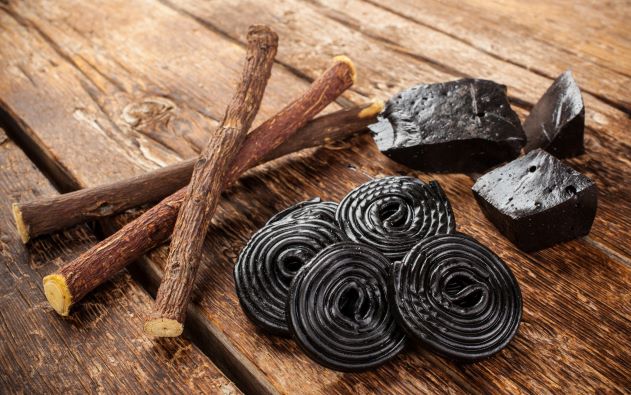As we learn more about the benefits of “nature’s medicines” that other cultures use successfully for some conditions, it makes sense to give a few a serious look due to the lack of side effects that most prescription drugs have.
It’s widely reported that oral diseases such as decay, gum disease, abscessed teeth, etc. are a significant source of morbidity across the world. Having disease free, comfortable teeth is important to proper eating. Especially in cultures that need to chew less refined food sources that we are accustomed to.
Licorice has many healing properties directly and from the metabolites of licorice that also shows beneficial secondary compounds. Licorice has properties that are well known to be antiviral, glucocorticoids (natural, powerful steroid compounds that have anti-inflammatory effects in the body- natural glucocorticoids work more effectively than laboratory-made ones), anti-inflammatory, antioxidant, anti-carcinogenic, etc.
Liquorice has been labelled Generally Recognized as Safe (GRAS) by United States Food and Drug Administration (FDA) and has been considered safe for human consumption provided it is consumed in small amounts and by individuals who are not sensitive to glycyrrhizin. Overuse of liquorice can lead to hypokalemia (low potassium), hypertension, rhabdomyolysis (inflammatory muscle breakdown), muscle paralysis, respiratory impairment, hypertensive emergencies, hyperparathyroidism, among other conditions. These side effects are likely reported with excessive, unmonitored use of licorice. Most prescription medications have longer “side effect” profiles than beneficial effects when I actually read the labels!
Touyz et al. recommended that 250-500 mg of liquorice can be safely consumed up to three times a day for medicinal purposes. The licorice compound has both an anti-inflammatory effect in the mouth and the gum tissue by “inhibiting” the periodontal-disease bacteria from “sticking” to the teeth as effectively. Licorice also has an inhibitory effect on gum-disease-related bone loss.
Some over-counter “cold sore” topical medications contain licorice compounds that help shorten the duration of cold sores.
There are also many studies that are looking at the anti-oral cancer effect of licorice compounds, and show some promise.
So, have some black licorice every day (moderation) and know that it might be helpful to our general health as well as providing a “treat” to the taste buds! At this point it looks like brushing, flossing, and regular visits to the dentist are still the best prevention for periodontal and dental disease…
(excerpts from article. Disclaimer; I recommend you consult with your physician before taking any significant licorice on a regular basis.)Following excerpt from article: Sigurjonsdottir et al. reported that consumption of doses as low as 50 gm/d for a period of 2 weeks can cause a rise in blood pressure [20]. According to the World Health Organization 100 mg/d of liquorice can be safely consumed without any ill effects, however the Dutch Nutrition Information Bureau limits the use of liquorice to 200 mg/d. In a study conducted by Sontai et al., 50% of the 14 study subjects consuming 100e200 mg/d of liquorice had to be prematurely withdrawn from the study due to hypokalemia or edema [21]. Studies have reported that liquorice metabolites can interfere with the pharmacological actions of conventional drugs)
- Ayurveda Integr Med. Oct 2018, Oct 31: Sidhu, et al.




